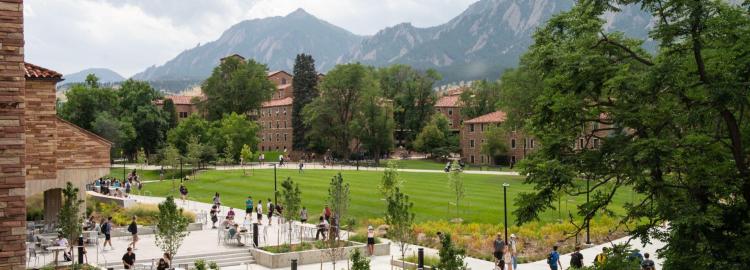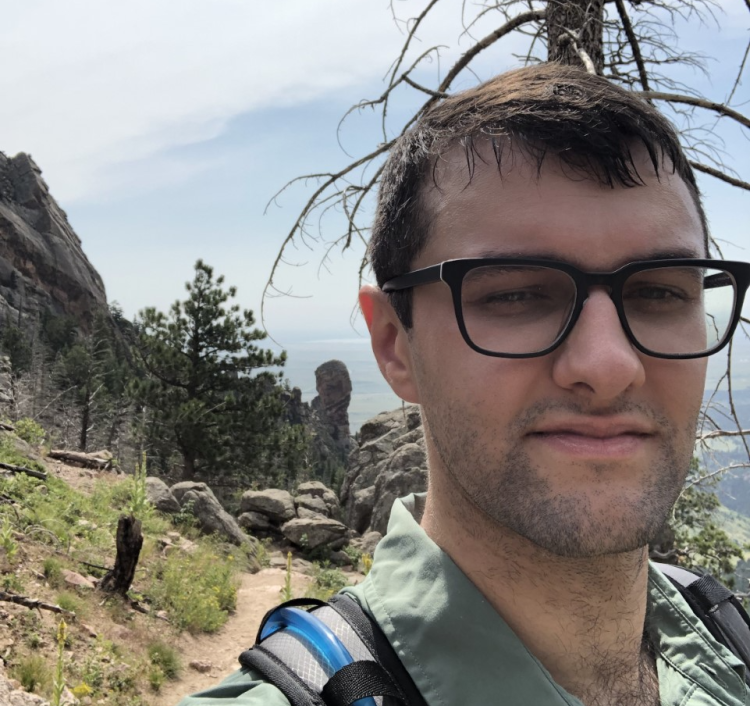Colorado community college students to get leg up on degrees in mechanical and civil engineering

Colorado's community college students will soon have a more direct path to achieving an engineering degree at CU Boulder.
The University of Colorado Boulder and the Colorado Community College System have signed an agreement that allows community college students who have earned an associate in engineering sciences (AES) degree to transfer into a mechanical or civil engineering bachelor’s degree at the College of Engineering and Applied Science. CU Boulder is the first in the state to offer a civil engineering transfer program and joins other campuses in offering the mechanical engineering track.
The new pathway will be open to students in fall 2022.
“The College of Engineering and Applied Science at CU Boulder has long been a leader in creating easy-to-understand, step-by-step pathways for community college students seeking to earn an engineering degree,” said Acting Dean Keith Molenaar. “This new collaboration improves an aspect of the transfer process and is also emblematic of the campus commitment to transfer students.”
Landon Pirius, CCCS vice chancellor, hailed the partnership.
“We are thrilled to have CU Boulder signing on as another transfer destination for our engineering students,” said Pirius. “Colorado is a hub for engineering companies, and we are focused on providing more education and training options to grow our state’s pipeline. Through this partnership, students have a clear path to an advanced degree while saving money along the way.”
Prospective engineering students from the state’s 13 community colleges were already able to transfer into CU Boulder, but the new streamlined process ensures that all 60 credits from the AES degree seamlessly transfer and apply to a four-year mechanical or civil engineering degree.
Officials say the change will help students graduate on time efficiently and economically, and will diversify the engineering workforce pipeline. Students also benefit from additional academic support in the community college system due to smaller class sizes.

Mechanical engineering student Ryan Tepper
Ryan Tepper, a recent transfer into CU Boulder’s mechanical engineering program, experienced the value of the partnership with Colorado’s Community College System firsthand.
Tepper graduated in 2018 with a degree in history and classics from McGill University in Montreal. After two years in the workforce and struggling during the pandemic, he realized he wanted to pursue a more practical and in-demand career path. Being equally skilled in math and science, he decided to seek a degree in mechanical engineering and moved back to Boulder to live with his parents while doing so.
He assumed he would attend CU Boulder, but after talking to a transfer admissions counselor, learned that the application process for students who already have an undergraduate degree can be complicated. The advisor suggested he start his engineering degree at Front Range Community College. If he kept his grade point average high, he would be guaranteed admission into the College of Engineering and Applied Science.
“I initially had some reservations because I feel like culturally, we’re told to go to a prestigious university,” said Tepper. “I’m happy to say that my experience at Front Range Community College completely changed the way I think about community colleges in general.”
Tepper sees big benefits on both sides of the equation. He relied heavily on advising services at both campuses to support him through the transfer process. Now that he’s at CU Boulder, he’s also taking advantage of academic coaching and skill-building workshops such as 3D printing and manufacturing techniques to increase his confidence and engineering competency. He said the prestige of the degree and connections the university has with research partners and industry are definitely pluses.
“I’m in favor of programs like this because higher education is really expensive,” said Tepper. “If we can lighten the debt burden on new generations of students and open doors to people who can’t afford to go to an expensive institution for four years, the more the better.”
Engineering jobs are in high demand. Mechanical and civil engineering jobs are projected to grow by 25% and 27%, respectively, over the next decade, according to data included in the 2021 Talent Pipeline Report.
The new Associate in Engineering Science degree formalizes and builds upon transfer pathways that the CU Boulder campus has had in place since 2014. Chris Anderson, CU Engineering director of academic success and transfer pathways, said he is thrilled to continue strengthening the college’s partnership with the Colorado Community College System.
“Our transfer students are a valued and integral part of our engineering student body, bringing a diverse array of experiences and perspectives that are vital to our college and campus community,” said Anderson. “We are honored to have the opportunity to continue building more streamlined pathways that allow students to pursue their highest academic goals in the most efficient way possible.”

